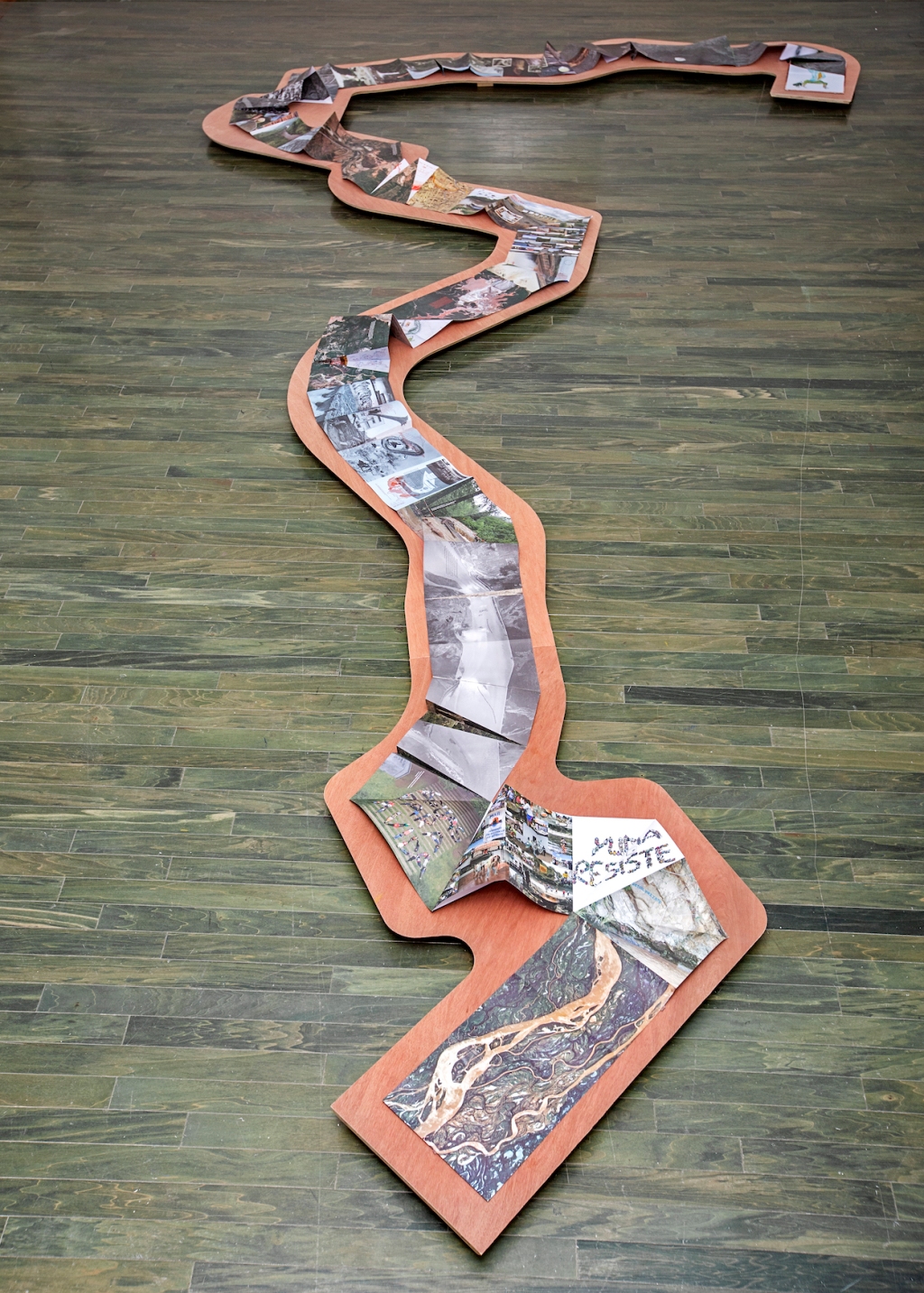 Carolina Caycedo, Serpent River Book, 2017, artist book and customized table, 8 by 241 by 215 inches. Courtesy the artist
Carolina Caycedo, Serpent River Book, 2017, artist book and customized table, 8 by 241 by 215 inches. Courtesy the artist
With its seventy-two pages completely unfolded, Carolina Caycedo’s Serpent River Book (2017) twists and turns across its accompanying piece of the same year, Serpent Table, comprising five curved segments of connected wooden boards, corresponding to the book’s five chapters, and installed just a few inches above the ground. The opening pages of Serpent River Book combine aerial views of the Yaqui River in Mexico, the Magdalena River in Colombia, and extensions of the Amazon through Brazil. These idyllic landscapes show signs of human activities that grow in scale, impact, and reach—from fishing nets and indigenous instruments for artisanal mining to highly disruptive construction of dams and canals, such as Colombia’s El Quimbo Dam.
This piece, currently on view at the Museum of Contemporary Art of Puerto Rico, is part of Caycedo’s ongoing body of work “Be Dammed” (2012–), which investigates how manmade infrastructures affect bodies of water as well as the surrounding body of people. Here, the low-set table enhances the sense of distanced perspective in the images, perhaps alluding to the impositions of transnational corporations, such as the energy company Enel-Emgesa, that portray themselves as paying mind to regional “development” but disregard local ramifications. That sense of an interfering presence is heightened in subsequent chapters, where Caycedo presents photographs of disasters—flooded villages, for example—resulting from such corporate constructions. Throughout the book, images of deltas and estuaries are collaged with poems by well-known poets as well as local artists, in addition to writings by Caycedo and photographs of protests against nature’s exploitation. This final chapter culminates in a photograph and an illustration of community members forming a human chain on the beach, spelling out the words RIOS VIVOS (Living Rivers) and YUMA RESISTE (Yuma Resists).
As a whole, Caycedo’s Serpent River Book reaffirms the belief, rooted in Indigenous cosmologies, that all bodies of water are connected—and perhaps, by extension, that their disruptions have ripple effects too. Considering current, shared experiences of exploitation, the piece acts not only as an archive of these struggles, but also as an educational tool that has been used in workshops with affected communities. Within the museum, Serpent River Book draws the viewer’s body closer to the people whose words it contains.
Source link : https://www.artnews.com/art-in-america/aia-reviews/one-work-carolina-caycedo-serpent-river-book-1234604187












